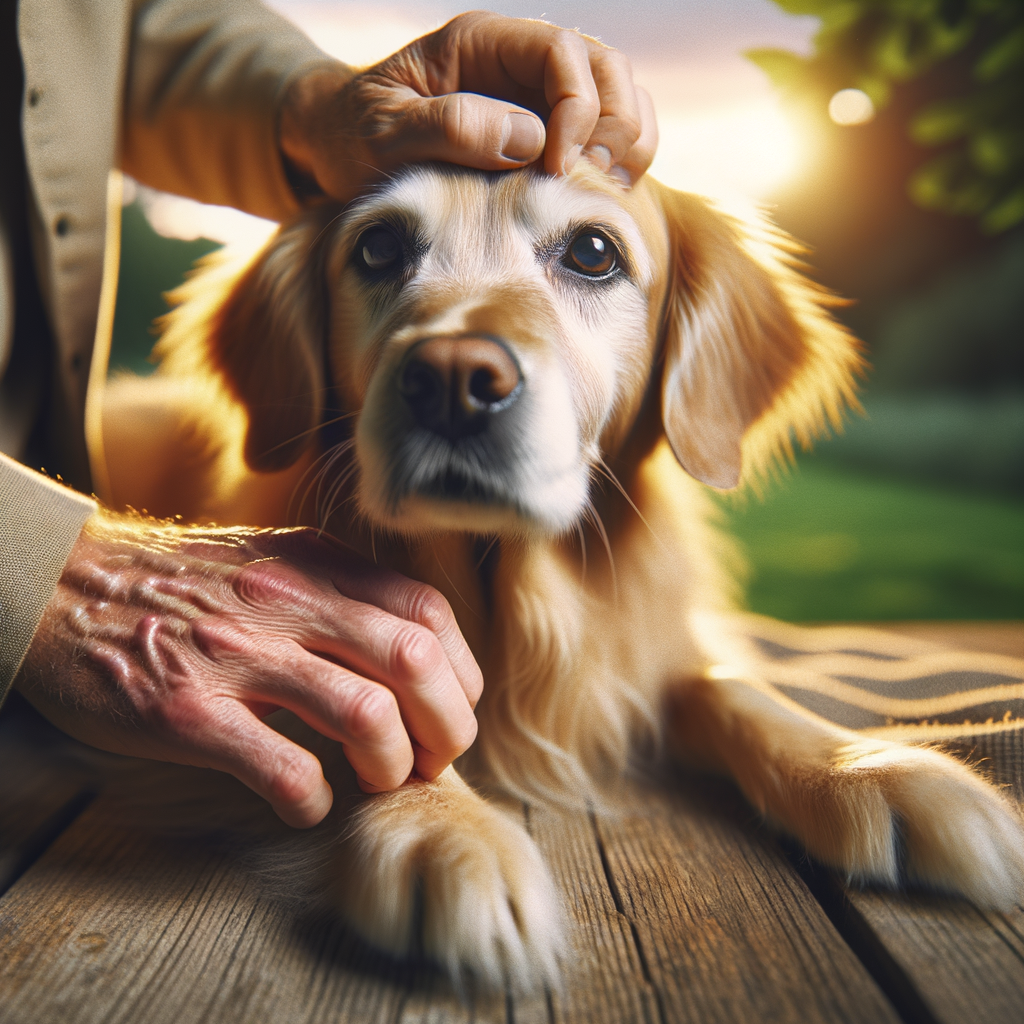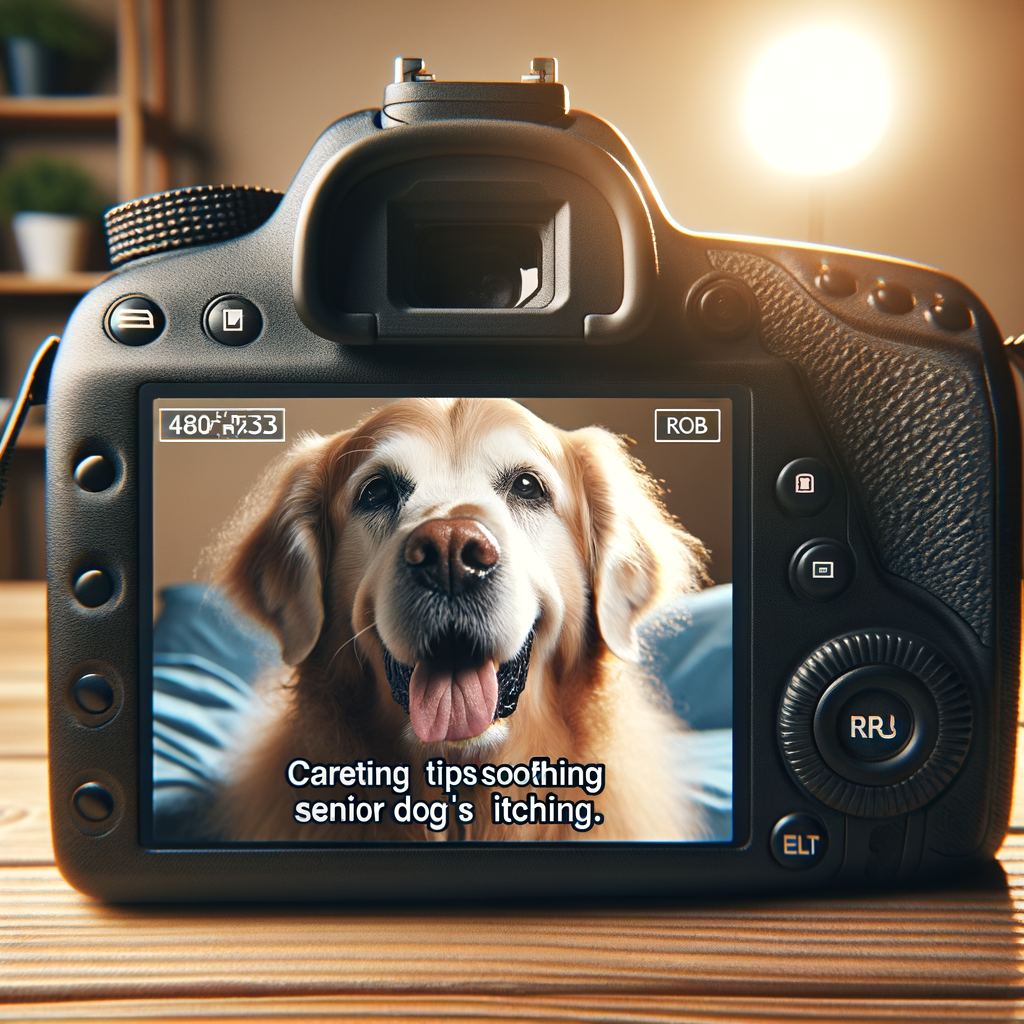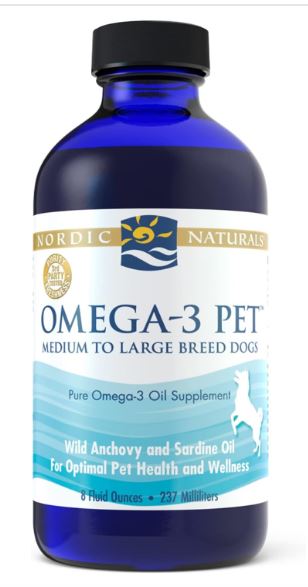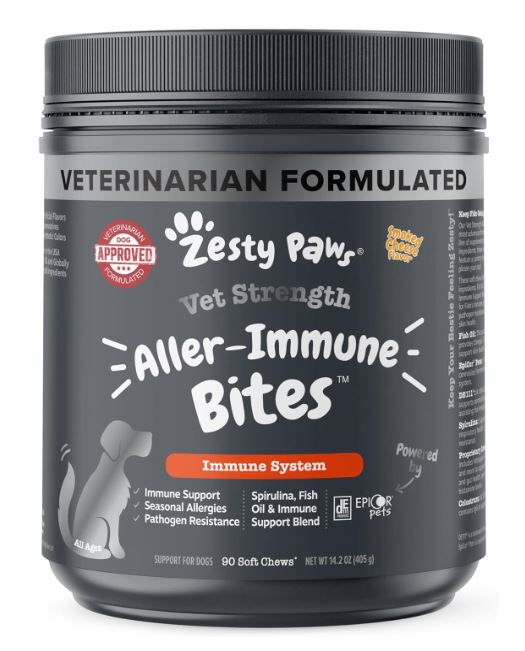Soothing Your Senior Dog’s Itching: Tailored Care Tips

Soothing Your Senior Dog's Itching: Tailored Care Tips
-
Table of Contents
- Introduction
- Natural Remedies and Home Treatments for Relieving Your Senior Dog’s Itching
- Grooming and Bathing Tips for Soothing Your Senior Dog’s Itchy Skin
- Choosing the Right Diet and Supplements for Senior Dogs with Itching
- Creating a Comfortable Environment for Your Itchy Senior Dog
- Identifying the Root Cause of Your Senior Dog’s Itching
- Conclusion
Introduction
Introduction:
Senior dogs often experience itching and discomfort due to various health issues such as allergies, skin infections, or arthritis. Providing tailored care for your senior dog’s itching is essential to ensure their comfort and well-being. In this article, we will discuss some tips and strategies to help soothe your senior dog’s itching and improve their quality of life.
Natural Remedies and Home Treatments for Relieving Your Senior Dog’s Itching
As our beloved furry friends age, they may start to experience various health issues, including itching and skin irritations. Senior dogs are more prone to skin problems due to a weakened immune system and decreased ability to groom themselves properly. It is essential for pet owners to provide tailored care to alleviate their senior dog’s itching and discomfort.
One of the most common causes of itching in senior dogs is dry skin. Just like humans, dogs can suffer from dry skin, especially as they age. To combat this issue, it is crucial to ensure that your senior dog is well-hydrated. Make sure they have access to fresh water at all times and consider adding a humidifier to your home to increase moisture in the air.
In addition to staying hydrated, senior dogs may benefit from dietary supplements that promote healthy skin and coat. Omega-3 fatty acids, such as fish oil, can help improve skin health and reduce itching. Consult with your veterinarian to determine the appropriate dosage for your senior dog based on their size and specific needs.
Regular grooming is also essential for senior dogs with itching issues. Brushing your dog’s coat regularly can help remove dead skin cells and distribute natural oils, which can alleviate dryness and itching. Be sure to use a gentle brush that won’t irritate your dog’s skin further.
When it comes to bathing your senior dog, opt for a mild, hypoallergenic shampoo that is specifically formulated for sensitive skin. Avoid using harsh chemicals or fragrances that can exacerbate itching and irritation. Be sure to rinse your dog thoroughly to remove all traces of shampoo, as leftover residue can cause further skin problems.
If your senior dog is experiencing severe itching, you may want to consider natural remedies to provide relief. Oatmeal baths are a popular home treatment for soothing itchy skin in dogs. Simply mix oatmeal with water to create a paste, then apply it to your dog’s skin and let it sit for 10-15 minutes before rinsing off.
Another natural remedy for itching in senior dogs is coconut oil. Coconut oil has anti-inflammatory properties that can help reduce itching and soothe irritated skin. Gently massage a small amount of coconut oil onto your dog’s skin, focusing on areas that are particularly itchy.
In some cases, senior dogs may develop allergies that cause itching and skin irritations. If you suspect that your dog has allergies, it is essential to identify the trigger and eliminate it from their environment. Common allergens for dogs include certain foods, pollen, and dust mites.
If your senior dog’s itching persists despite your best efforts, it is crucial to consult with your veterinarian. They can help determine the underlying cause of the itching and recommend appropriate treatment options, such as prescription medications or allergy testing.
By providing tailored care and attention to your senior dog’s itching issues, you can help improve their quality of life and keep them comfortable in their golden years. With a combination of proper hydration, grooming, natural remedies, and veterinary care, you can help soothe your senior dog’s itching and ensure they live a happy and healthy life.
Grooming and Bathing Tips for Soothing Your Senior Dog’s Itchy Skin
As our beloved furry friends age, they may start to experience various health issues, including itchy skin. Senior dogs are more prone to skin problems due to factors such as decreased oil production, thinning skin, and underlying health conditions. It is essential for pet owners to provide tailored care to soothe their senior dog’s itching and improve their overall quality of life.
One of the first steps in addressing your senior dog’s itching is to ensure they are on a proper diet. A diet rich in essential fatty acids, such as omega-3 and omega-6, can help improve your dog’s skin health and reduce itching. Consult with your veterinarian to determine the best diet for your senior dog’s specific needs.
Regular grooming is also crucial in managing your senior dog’s itching. Brushing your dog’s coat regularly helps remove dead skin cells, dirt, and debris that can contribute to itching. Use a gentle brush or comb to avoid irritating your dog’s sensitive skin. Additionally, bathing your senior dog with a mild, hypoallergenic shampoo can help soothe their skin and reduce itching. Be sure to rinse thoroughly to remove all traces of shampoo, as leftover residue can further irritate your dog’s skin.
In addition to diet and grooming, there are several other care tips that can help soothe your senior dog’s itching. Providing your dog with a comfortable and clean living environment is essential. Wash your dog’s bedding regularly to remove allergens and irritants that can exacerbate itching. Keep your home clean and free of dust and mold, as these can also trigger skin problems in senior dogs.
Regular veterinary check-ups are crucial for senior dogs, as underlying health conditions can contribute to itching. Your veterinarian can help identify any medical issues that may be causing your dog’s itching and recommend appropriate treatment. In some cases, medication or supplements may be necessary to manage your senior dog’s skin problems effectively.
It is important to be patient and consistent in caring for your senior dog’s itching. It may take time to see improvements, but with proper care and attention, you can help alleviate your dog’s discomfort and improve their quality of life. Remember to always consult with your veterinarian before making any changes to your dog’s diet or grooming routine.
In conclusion, caring for a senior dog with itching requires a tailored approach that addresses their specific needs. By providing a proper diet, regular grooming, a clean living environment, and regular veterinary care, you can help soothe your senior dog’s itching and improve their overall well-being. With patience and dedication, you can ensure that your senior dog enjoys a comfortable and happy life in their golden years.
Choosing the Right Diet and Supplements for Senior Dogs with Itching

As our furry companions age, they may start to experience various health issues, including itching. Itching in senior dogs can be caused by a variety of factors, such as allergies, skin infections, or underlying health conditions. It is essential to address your senior dog’s itching to ensure their comfort and well-being. One way to help soothe your senior dog’s itching is by choosing the right diet and supplements tailored to their specific needs.
When it comes to selecting the right diet for a senior dog with itching, it is crucial to consider their individual dietary requirements. Some senior dogs may have food allergies or sensitivities that can contribute to itching. In these cases, it may be beneficial to switch to a hypoallergenic diet that is free of common allergens such as wheat, corn, and soy. Additionally, choosing a diet that is rich in omega-3 fatty acids can help support your senior dog’s skin health and reduce itching.
Supplements can also play a significant role in managing your senior dog’s itching. Omega-3 fatty acids, such as fish oil, can help reduce inflammation and improve skin health, leading to less itching. Other supplements, such as probiotics and antioxidants, can also support your senior dog’s overall health and immune system, which may help alleviate itching caused by underlying health issues.
When selecting supplements for your senior dog, it is essential to consult with your veterinarian to ensure that they are safe and appropriate for your dog’s specific needs. Your veterinarian can help you determine the right dosage and frequency of supplements to provide the most benefit for your senior dog.
In addition to diet and supplements, there are other steps you can take to help soothe your senior dog’s itching. Regular grooming can help remove allergens and irritants from your dog’s skin and coat, reducing itching. Bathing your senior dog with a gentle, hypoallergenic shampoo can also help soothe their skin and alleviate itching.
It is essential to pay attention to any changes in your senior dog’s itching and overall health. If your dog’s itching persists or worsens despite dietary changes and supplements, it is crucial to consult with your veterinarian. Your veterinarian can help identify the underlying cause of your senior dog’s itching and recommend appropriate treatment options.
In conclusion, choosing the right diet and supplements for your senior dog with itching can help alleviate their discomfort and improve their overall quality of life. By addressing your senior dog’s individual dietary needs and providing appropriate supplements, you can help soothe their itching and support their skin health. Remember to consult with your veterinarian to ensure that you are providing the best care for your senior dog.
Creating a Comfortable Environment for Your Itchy Senior Dog
As our furry companions age, they may start to experience various health issues, including itching and skin irritations. Senior dogs are more prone to skin problems due to factors such as decreased immune function, hormonal changes, and environmental allergies. It is essential for pet owners to provide tailored care to soothe their senior dog’s itching and create a comfortable environment for them to thrive in.
One of the first steps in addressing your senior dog’s itching is to identify the underlying cause. Itching can be triggered by a variety of factors, including allergies, parasites, skin infections, and hormonal imbalances. Consulting with your veterinarian is crucial in determining the root cause of your dog’s itching and developing an appropriate treatment plan.
Once the cause of your senior dog’s itching has been identified, it is important to create a comfortable environment that promotes healing and reduces discomfort. Regular grooming is essential for senior dogs with skin issues, as it helps to remove dirt, debris, and allergens that can exacerbate itching. Bathing your dog with a gentle, hypoallergenic shampoo can also help to soothe irritated skin and reduce itching.

In addition to grooming, it is important to provide your senior dog with a balanced diet that supports skin health. Omega-3 fatty acids, such as those found in fish oil supplements, can help to reduce inflammation and improve skin condition. Adding a supplement like coconut oil to your dog’s diet can also help to moisturize dry, itchy skin from the inside out.
Creating a comfortable environment for your senior dog also involves managing their living space to minimize potential irritants. Regularly washing your dog’s bedding and vacuuming their living area can help to reduce allergens and irritants that can trigger itching. Using a gentle, fragrance-free laundry detergent and avoiding harsh cleaning chemicals can also help to prevent skin irritation.
In addition to environmental factors, it is important to consider your senior dog’s mental and emotional well-being when addressing their itching. Stress and anxiety can exacerbate itching in dogs, so providing a calm and secure environment is essential. Spending quality time with your senior dog, providing mental stimulation, and ensuring they have a comfortable and safe space to rest can help to reduce stress and promote healing.
In conclusion, creating a comfortable environment for your itchy senior dog involves a combination of identifying the underlying cause of their itching, providing tailored care, and managing their living space to minimize potential irritants. By working closely with your veterinarian and implementing a holistic approach to care, you can help to soothe your senior dog’s itching and improve their overall quality of life. Remember, every dog is unique, so it may take some trial and error to find the right combination of treatments that work best for your furry friend. With patience, love, and proper care, you can help your senior dog live a happy, itch-free life.
Identifying the Root Cause of Your Senior Dog’s Itching
As our beloved canine companions age, they may experience a variety of health issues that can impact their quality of life. One common issue that senior dogs may face is itching. Itching can be caused by a variety of factors, including allergies, skin infections, and underlying health conditions. In order to provide your senior dog with the best care possible, it is important to identify the root cause of their itching.
One of the first steps in identifying the root cause of your senior dog’s itching is to observe their behavior and environment. Take note of when your dog is itching the most, as well as any changes in their diet, grooming routine, or living environment. This information can help you and your veterinarian determine potential triggers for your dog’s itching.
Allergies are a common cause of itching in senior dogs. Allergies can be triggered by a variety of factors, including food, environmental allergens, and parasites. If you suspect that your senior dog may have allergies, it is important to work with your veterinarian to determine the specific allergen that is causing the itching. Your veterinarian may recommend allergy testing or a food elimination diet to identify the trigger.
Skin infections can also cause itching in senior dogs. Bacterial and fungal infections can lead to redness, inflammation, and itching in your dog’s skin. If you suspect that your senior dog may have a skin infection, it is important to seek veterinary care as soon as possible. Your veterinarian may recommend a skin scraping or culture to determine the type of infection present and prescribe appropriate treatment.
Underlying health conditions, such as thyroid disease or hormonal imbalances, can also contribute to itching in senior dogs. If your veterinarian suspects that an underlying health condition may be causing your dog’s itching, they may recommend blood tests or other diagnostic tests to confirm the diagnosis. Treatment for underlying health conditions may include medication or dietary changes to help manage your dog’s symptoms.
Once the root cause of your senior dog’s itching has been identified, it is important to tailor their care to address their specific needs. This may include changes to their diet, grooming routine, or living environment to help manage their symptoms. For example, if your senior dog has allergies, your veterinarian may recommend a hypoallergenic diet or regular bathing to help reduce their exposure to allergens.
In addition to addressing the root cause of your senior dog’s itching, there are also steps you can take to help soothe their skin and provide relief from itching. Regular grooming, including brushing and bathing, can help remove allergens and irritants from your dog’s skin. Using a gentle, hypoallergenic shampoo can also help soothe your dog’s skin and reduce itching.
If your senior dog is experiencing severe itching or skin irritation, it is important to seek veterinary care as soon as possible. Your veterinarian can provide a thorough examination and recommend appropriate treatment to help manage your dog’s symptoms. By identifying the root cause of your senior dog’s itching and tailoring their care to address their specific needs, you can help provide them with the best possible quality of life in their golden years.
Conclusion
In conclusion, providing tailored care for your senior dog’s itching is essential for their comfort and well-being. By identifying the underlying cause of the itching and implementing appropriate treatment and management strategies, you can help alleviate your dog’s discomfort and improve their quality of life. Regular grooming, a balanced diet, and regular veterinary check-ups are key components of a comprehensive care plan for senior dogs with itching issues.



